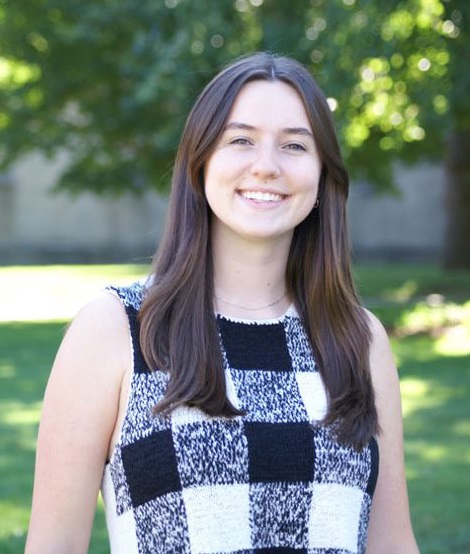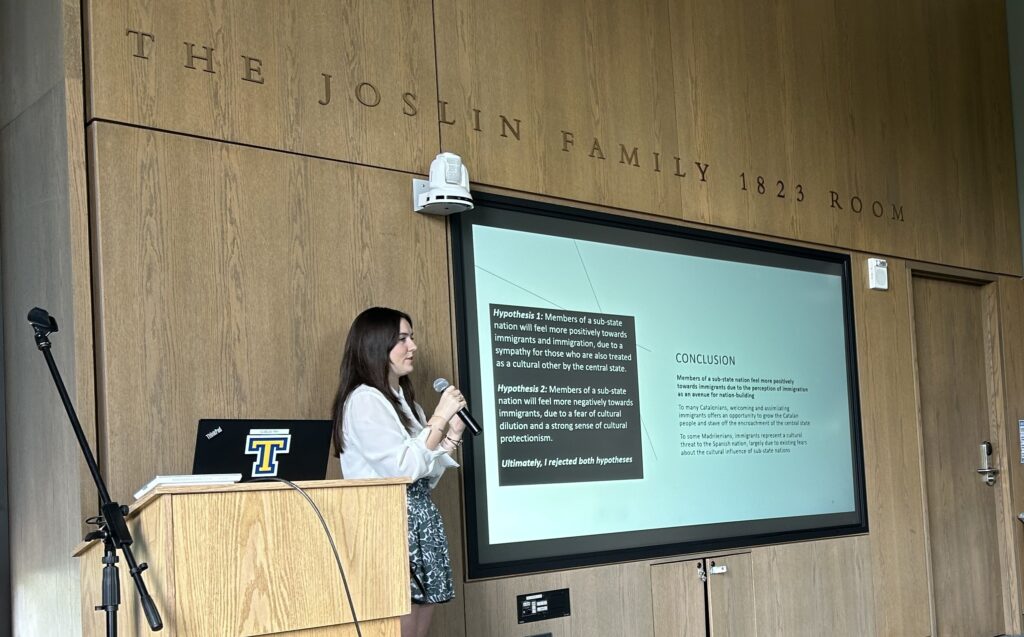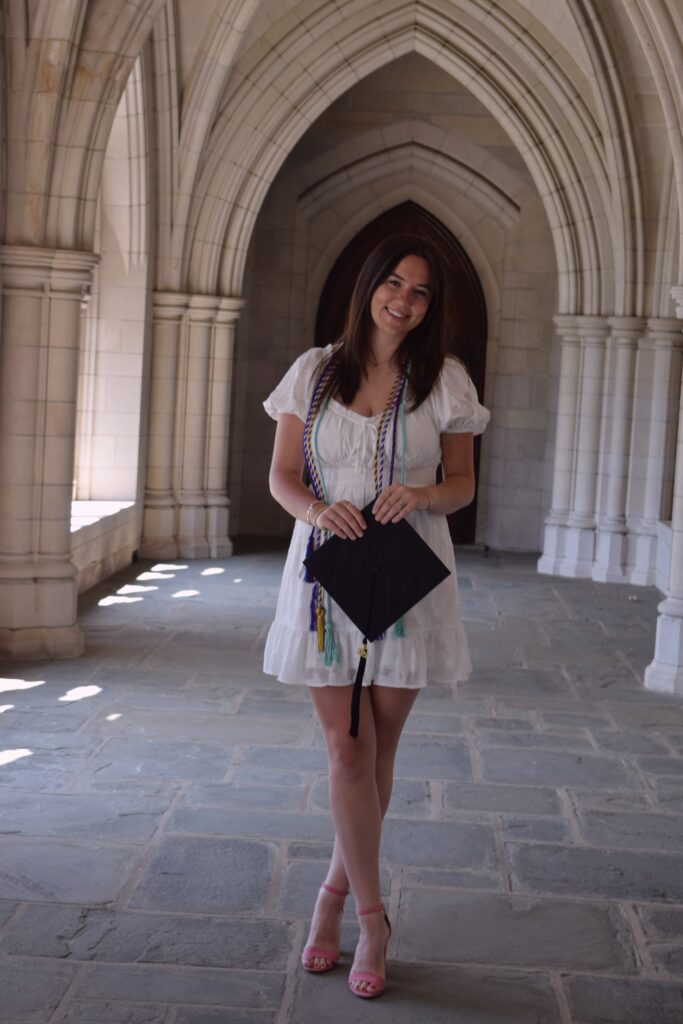Trinity Alumna Receives Fulbright Grant to Teach English in Argentina
Reagan Flynn ’23 has received a prestigious Fulbright English Teaching Assistant (ETA) Award to teach English in Argentina while serving as a cultural ambassador for the United States.
“There’s nothing comparable to learning a language from a native speaker,” said Flynn. “I’ll be able to bring something to the table that is a real benefit for students. And it works both ways, giving me an experience I’d never have otherwise.”

When Flynn came to Trinity from Pittsboro, North Carolina, she was already gravitating toward political science, which became her major. “I thought I wanted to be involved in politics, but my interests broadened so much at Trinity,” she said. “I was exposed to different ways of thinking, researching, and writing, and became more interested in comparative politics, political science research, and political thought.”
Flynn, who graduated summa cum laude and as a member of Phi Beta Kappa, was particularly inspired by her courses and interactions with Reo Matsuzaki, associate professor of political science, and Anthony M. Messina, John R. Reitemeyer Professor of Political Science, who was her senior thesis adviser. “I had so much support at Trinity and really benefited from the close-knit community,” Flynn said. “I met with professors one-on-one and came to see how important that is. I feel very lucky to have been able to come to Trinity.”
Messina said that Flynn’s thesis on sub-state nationhood in Spain was one of the most carefully crafted and insightful projects he has advised during his 40-year teaching career. “Reagan has a first-rate intellect and an insatiable thirst for knowledge,” Messina said. “Her dedication to excellence is inspiring.”
As an active member of the Trinity student community, Flynn was part of the Mock Trial Team and The Quirks a cappella group, and worked in Trinity’s Admissions Office and Writing Center. “Being part of the Writing Center had a big influence on my openness to go teach,” she said.

While studying Spanish in high school, Flynn spent 10 days in the Dominican Republic living with a host family. At Trinity, she continued studying the Spanish language and completed a minor in Hispanic studies. Ongoing concerns related to the COVID-19 pandemic cancelled her plans for a semester in Argentina, so Flynn chose to study away in Spain instead.
“I did a total immersion program in Madrid, staying with a local family and taking classes at a Spanish university,” Flynn said. “It was the best experience of my life. It was challenging, but then I found my way, and it was really empowering. My Spanish improved so fast. That experience was so positive for me, not only for my Spanish and my educational goals, but it changed my whole perspective.”
She decided that no matter what she chose to pursue as graduate education or a career, she would take the time to be open to new experiences, people, and places. “I want to keep experiencing that growth and also invest in my language and cultural education,” Flynn said.
After learning that a Fulbright grant would offer those opportunities, Flynn worked with Mark Hughes, Trinity’s associate director of grants and fellowships, on the application process. An urban placement working with university students and teacher training students at a university outside of Buenos Aires—in the country she never got to visit—seemed like the perfect fit.

Because the seasons and academic year are reversed in the southern hemisphere, Flynn will teach in Argentina from April through November of 2024. Flynn added, “Part of the grant opportunity is to spend half your time pursuing a side project, so I’m looking at community work, diplomacy, NGOs, or organizing.”
Messina said that Flynn’s intellectual and emotional energy knows no bounds. “I fully expect she will apply herself to the challenge of teaching English to Argentine students with the same drive and exceptional results that marked her superb academic performance as a political science major and undergraduate student,” he said.
Matsuzaki added that while Flynn’s academic credentials are impeccable, he is especially impressed by her strong moral compass. “She refuses to let prejudice and bigotry go unchallenged, whether in the classroom or in the broader society,” he said. “Intelligent, hardworking, and passionate, and at the same time charismatic, cheerful, and funny, she is indeed the ideal Fulbrighter.”
Flynn said she plans to stay open-minded about plans for after her time in Argentina. “I have ideas of what I want to do when I get back, but I know my perspective might change while I’m there,” Flynn said. “Professor Matsuzaki gave me the best advice: don’t follow a plan, necessarily; follow the opportunities.” Flynn has worked for the past year as a paralegal in Manhattan, and may pursue law, government work, or something more focused on writing and research.
No matter where she ends up, Flynn knows that travel and learning will remain life-long priorities. “I realize what a profound privilege it is to see the world in any capacity,” she said. “If the opportunity came to go live abroad again, that would be enticing. Once you get a global perspective, it’s hard to shrink back down.”
The Fulbright Program, the flagship international academic exchange program sponsored by the U.S. government, has fostered mutual understanding between the United States and other countries since 1946. The program provides awards to approximately 8,000 students, scholars, teachers, artists, and professionals each year from the United States and 160 countries.
